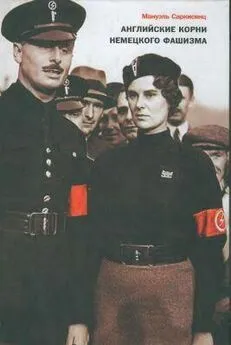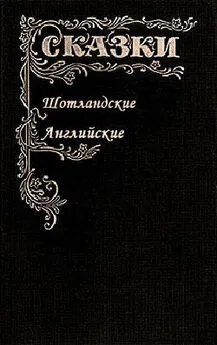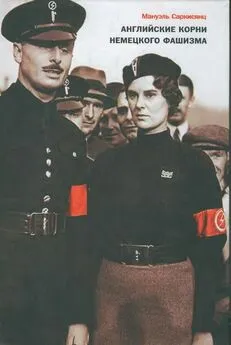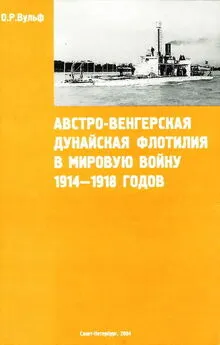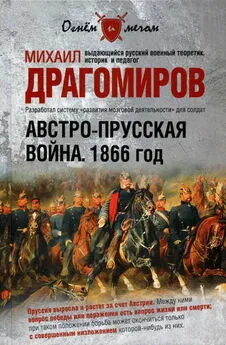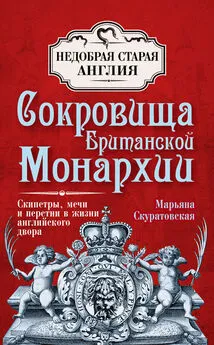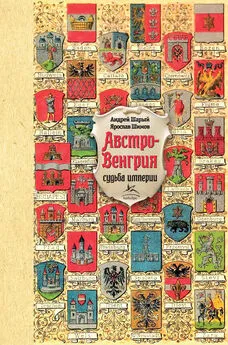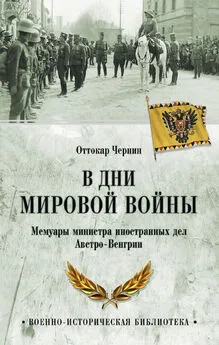Мануэль Саркисянц - Английские корни немецкого фашизма: от британской к австро-баварской «расе господ».
- Название:Английские корни немецкого фашизма: от британской к австро-баварской «расе господ».
- Автор:
- Жанр:
- Издательство:неизвестно
- Год:неизвестен
- ISBN:нет данных
- Рейтинг:
- Избранное:Добавить в избранное
-
Отзывы:
-
Ваша оценка:
Мануэль Саркисянц - Английские корни немецкого фашизма: от британской к австро-баварской «расе господ». краткое содержание
Мануэль Саркисянц (р. 1923, Баку) — известный историк и социолог, исследователь религиозных истоков народнического социализма России, Латинской Америки, Юго-Восточной Азии.
В данной книге излагается совершенно новый взгляд на происхождение немецкого фашизма. М. Саркисянц доказывает, что многие истоки идей Гитлера кроются в имперской политике и идеологии Англии. Автор последовательно показывает, как колониальная политика Англии, ее имперские амбиции, отношение к расовому вопросу, принципы воспитания и образования повлияли на формирование идей Гитлера. Подробно рассказано об идеализации гитлеровского Рейха в консервативном истеблишменте Великобритании, об участии англичан во Второй мировой войне на стороне Германии. Автор анализирует также принципиальные различия в теоретических и практических подходах британских и германских расистов, обусловивших столь разную судьбу и оценку соответствующих исторических феноменов.
Английские корни немецкого фашизма: от британской к австро-баварской «расе господ». - читать онлайн бесплатно полную версию (весь текст целиком)
Интервал:
Закладка:
261
142. Gossett, ibid., p. 178, 185.
262
143. Flora Annie Steel, On the face of the Waters. A tale of the Indian mutiny (London, 1897), p. 2, angefuhrt bei Greenberger, The British Image of India, p. 13.
263
144. Robert Knox, The Races of Men (1850): Mac Dougal, Racial Myth in English history, S. 91.
264
145. Sir Charles Dilke, Greater Britain (London, 1894), p. 564; Greater Britain (edition of 1869), p. 230, 572f.
265
146. J. A. Cramb, Origins and Destiny of Imperial Britain (London, 1900): Patrick von zur Muhlen, Rassenideoiogie, Geschichte und Hintergrunde (Berlin, 1977), S. 216.
266
147. Dennis Kincaid, British social life in India (London, 1973), p. xiii, 213.
267
148. K. Lun & Richard Thurlaw (Editors), British Fascism (London, 1980), p. 168–186: Paul Hayes, "The contribution of British intellectuals to fascism"; F. W. Hirst & G. Murray & J. L. Hammond, Liberalism and Empire (London, 1900), S. 152, 171ff.
268
149. Konstantin Pobedonoscev, Moskovskij Sbornik (Moskau, 1901), p. 240–242; Daniel P. Todes, Darwin without Malthus. The struggle for existence in Russian evolutionary thought (New York, 1989), pp. 19, 41, цит по: Данилевский. Дарвинизм. Критическое обозрение. СПб., 1885. Т. I. С. 478.
269
150. Lean Poliakov, The Aryan Myth. A. History of racist and nationalist ideas in Europe (London, 1971), p. 298.
270
151. Herbert Spencer, Social Statics or the Conditions essential for human happiness (London, 1851), p. 31 If, 314f, 321ff, 416f; Houghton, Victorian… mind, p. 139f.
271
152. David Duncan (Editor), Life and Letters of Herbert Spencer (New York, 1908), II, p. 16f: Spencer's letter of 26. August 1892 to Kentaro Kaneko.
272
152a. Stefan Kiihl, The Nazi Connection. Eugenics, American Racism and German National Socialism (Oxford, 1994), pp. XIV, 72; Stefan Kuhl, Internationale der Rassisten (Frankfurt, 2000), pp. 122 ff; cf. ibid., pp. 18, 41.
273
153. Cf. Hugh Mac Dougal, Racial Myth in English History, p. 97.
274
154. Hannah Arendt, Ursprunge… totaler Herrschaft, S. 290; Bernard Semmel, Imperialism and social reform, English Social-Imperial thought 1895–1914 (London, 1960), p. 42, 44, 49.
275
155. Francis Galton, Hereditary Genius (New York, 1891), p. 338f, 346, cited in Gossett, Race… in America, p. 155–156; Semmel, p. 47.
276
156. Muhlen, Rassenideologien, S. 240; American Historical Review, Vol. CVI, No. 4 (October, 2001), p. 1481, review of Pascal Grosse, Kolonialismus, Eugenikund burgerliche Gesselschaft in Deutschland 1850–1918. Campus Forschung. No. 815 (New York, 2000); Lothar Stengel von Rutkowski, Was ist ein Volk? Der biologische Xfolksbegriff (Erfurt, 1943).
277
157. Unveroffentlichte Rede Hitlers vom 22. Juni 1944, gehalten vor Offiziersanwartern, zitiert nach Christian Zentner: Adolf Hitler, Mein Kampf. Kommentierte Auswahl (1974), S. 225.
278
158. Emil Brix (Hrsg.), Ludwig Gumplowicz oder Die Gesellschaft als Natur (Koln, 1986), S. 25; Ludwig Gumplowicz, Grundriss der Soziologie (Wien, 1905), S. 139, 76, 78, 198.
279
159. Ibid., S. 195.
280
160. Ibid., S. 78.
281
161. Benjamin Kidd, Soziale Evolution. Deutsche Ubersetzung (Jena, 1895), S. 155, 156.
282
162. Lunn & Thurlaw, British Fascism, p. 178: Paul Hayes, "Contributions of British intellectuals to Fascism».
283
163. Benjamin Kidd, The Science of Power (London, 1918), p. 294.
284
164. Benjamin Kidd, Social Evolution (London, edition of 1898), p. 280.
285
165. Lunn & Thurlaw, British Fascism, p. 178.
286
166. Karl Pearson, National Life from the standpoint of Science (London, 1901), p. 19, quoted in Paul Hayes, "Contributions of British intellectuals to Fascism": Lunn & Thurlaw, British Fascism. S. 176f; Bernard Semmel (as note 154), p. 4If, 44, 49f; Jonathan Rutherford, Forever England, Reflections on Masculinity and Empire (London, 1997), p. 55; G. R. Searle, The Quest for National Efficiency. A study in British politics and political thought 1899–1914 (Oxford, 1971), p. 96.
287
167. Patrick von zur Muhlen, Rassenideologien. Geschichte und Hintergrund (Berlin, 1977), S. 98, 215.
288
168. Friedrich Nietzsche, "Frohliche Wissenschaft": Aphorismus 349: Werke, Band II (Munchen, 1966), S. 215; Веселая наука / Пер. M. Кореневой. // Ницше Ф. Стихотворения. Философская проза. СПб., 1993. С. 475.
289
169. Muhlen, Rassenideologien, S. 85 unter Anfuhrung von: John Berry Haycraft, Darwinism and Race Progress (London, 1895).
290
170. Muhlen, ibid., S. 85.
291
170a. Robert Knox, Races of Men (London, 1850), p. V; S. Kiihl, Internationale der Rassisten (1994), S. 25.
292
171. Thost, Als Nationalsozialist in England (Munchen, 1939), S. 99; Thurlow, Fascism in Britain (London, 1982), p. 276; Hannah Arendt, Elemente… totaler Herrschaft, S. 288.
293
172. Ibid., S. 288; Weir and Boyle, "Human Rights in the United Kingdom": The Political Quarterly, Vol. LXVIII, № 2 (April/June, 1997), p. 128; Michael Levin, in: American Historical Review, Vol. CV, No I (2000), p. 279; cf. Alan Ereira, People's history of England (London, 1981), p. 41, 50, 56f, 62, 67.
294
172a. Don Herzog, Poisoning the mind of the Lower Orders (Princeton, 1998), p. 513; R. Baden-Powell, Scouting for Boys (London, 1908), p. 200; Politics for the People vom 6. Mai 1848, reprinted in: Joel H. Wiener (Editor), Great Britain. The Lion at Home. A documentary history of domestic policy 1689–1973, Vol. II (New York, 1983), p. 228, 230, 239f.
295
49. H. Picker (Hrsg.), Hitlers Tischgesprache (Stuttgart, 1976), S. 456f: Tischgesprache vom Abend des 24. Juli 1942. Vgl Peter Schwind-Waldeck, Wie deutsch war Hitler? (Frankfurt, 1979), S.12, 210 und Alfred D. Low, Jews in the eyes of the German, From the Enlightenment to Imperial Germany (Philadelphia, 1979), p. 52.
296
173. Don Herzog, p. 480, quoting "John Bull" of 11. May, 1834, p. 149; Ross McKibbin, Class and Culture. England 1918–1957 (1998), pp. 530f; Hannah Arendt, Elemente… totaler Herrschaft, S. 289; Walter Bagehot, The English Constitution (Glasgow, 1975), p. 265–269.
297
174. Carl Peters, England und die Englander, S. 154–155.
298
175. Dibelius, England, II, S. 204, 20, 207; Bagehot, The English Constitution (Glasgow, 1975), p. 270, 271.
299
176. E. W. Eschmann, "Englische Fuhrelbildung": Die Tat, XXVII, Heft 3 (Juni 1935), S. 169.
300
177. Reginald Reynolds, The White Sahibs in India (London, 1937), p. 274, 270, quotes Durant, The case for India (1930).
301
178. Heinrich von Treitschke, Politik. Vorlesungen, gehalten an der Universitat zu Berlin (Leipzig, 1898), S. 257, 525.
302
179. Hans Grimm, Englische Rede. Wie ich den Englander sehe (Gutersloh, 1938), S. 28.
303
180. V. G. Kiernan, The Lords of Humankind (London, 1969), p. 58; Friedrich Lange, Reines Deutschtum, Grundzuge einer nationalen Weltanschauung (Berlin, 1904), S. 237f.
304
181. Hannah Arendt, Elemente totaler Herrschaft, S. 289.
305
182. Edmund Burke, "Reflections on the Revolution in France": Works (London, 1899), Vol. III, p. 251ff; John Morley, Life of Cobden, p. 76.
306
183. Charles Dilke, Greater Britain (London, 1885), p. 562; Baden-Powell, Scouting for Boys, p. 27; Wingfield-Stratford, The Squire and his Relations, p. 92.
307
184. Wilhelm Dibelius, England, II, Halbband (Leipzig, 1923), S. 191.
308
185. Kiernan, Lords of Humankind, p. 59, quotes J. W. Sherer, Havelock's March to Cawnpore (о. O., 1857), p. 108, 151f.
309
186. Hannah Arendt, Elemente… totaler Herrschaft, S. 289.
310
187. Robert Cecil, The Myth of the Master Race, p. 92; Paul de Lagarde, Deutsche Schriften (Gottingen, 1903), S. 7: "Konservativ? Kleiner Sommer 1853".
311
188. Dibelius, England, II, S. 207.
312
189. Carl Peters, England und die Englander, S. 126; W R. W. Stephen (Editor), Life and Letters of Edward Freeman, Vol. II (London, 1895), pp. 234, 236f; cf. H. F. K. Gunther, Ritter, Tod und Teufel, S. 129; Mackenzie, p. 105, quoting A. Merriman Labor, Britons through Negro Spectacles (London, 1905), pp. 175ff; W. Kraus, "Raden Saleh. Ein indonesischer Maler in Deutschland": Orientierungen 1 (1996: Universitat Bonn), p. 59, quotes Virginia Surtees, Charlotte Canning, Lady in Waiting to Queen Victoria (London, 1975), p. 158.
313
190. Hermann Rauschning, The Voice of Destruction (New York, 1940), p. 42: Walter Struve, Elites against Democracy, Leadership ideals in bourgeois political thought in Germany 1890–1933 (Princeton, 1973), p. 9.
314
191. Hans Thost, Als Nationaisozialist in England (Munchen, 1939), S. 114; Wahrhold Drascher, Vorherrschaft derWeissen Rasse (1936), S. 224.
315
192. Ibid., S.209.
316
193. Ibid., S. 209; Alfred Rosenberg, Der Mythus des Zwanzigsten Jahrhunderts (Munchen, 1943), S. 529.
317
193a. Tim Jeal, Baden Powell, Founder of the Boy Scouts (New Haven, USA, 2001), p. 185.
318
194. Hans Grimm, "\bm politischen Dichter. Geistige Begegnung mit Rudyard Kipling" Das Innere Reich (October 1935/March 1936), S. 1458; K. D. Ewing and C. A. Gearty, The Struggle for Civil Liberties… in Britain 1914–1945 (New York, 2000), p. 35; Madeleine Bunting, The Model Occupation (New York, 1995), p. 331; Lord Alfred Milner, Nation and Empipre… Collection of Speeches (London, 1913), p. 353; Scott Newton, Profits of Peace. The Political Economy of Anglo-German Appeasement, p. 152; Georg Orwell, Collected Essays. Journalism and Letters. Edited by Sonia Orwell. Vol. I (London, 1968), p. 67.
319
195. Paul Kennedy & Anthony Nicholls (Editors), Nationalist and Racialist movements in Britain and Germany before 1914 (Oxford, 1981), S. 183, 173, 175; Geoffrey Crossick (Editor), The lower Middle Class in Britain (London, 1977), p. 94; cf. Robert Roberts, The classic Slum. Salford life… (n. p., n. d.) p. 183.
320
196. Briton Martin, New India 1985, British official policy and the emergence of the Indian National Congress (Berkeley, 1969), p. 242, 248f, 254, 260f, 267.
Читать дальшеИнтервал:
Закладка:
